
How nations and peoples mattered during the Anglo-Saxon settlement of Britain
The importance of ethnic identity in Gildas, Bede, and in legal codes.
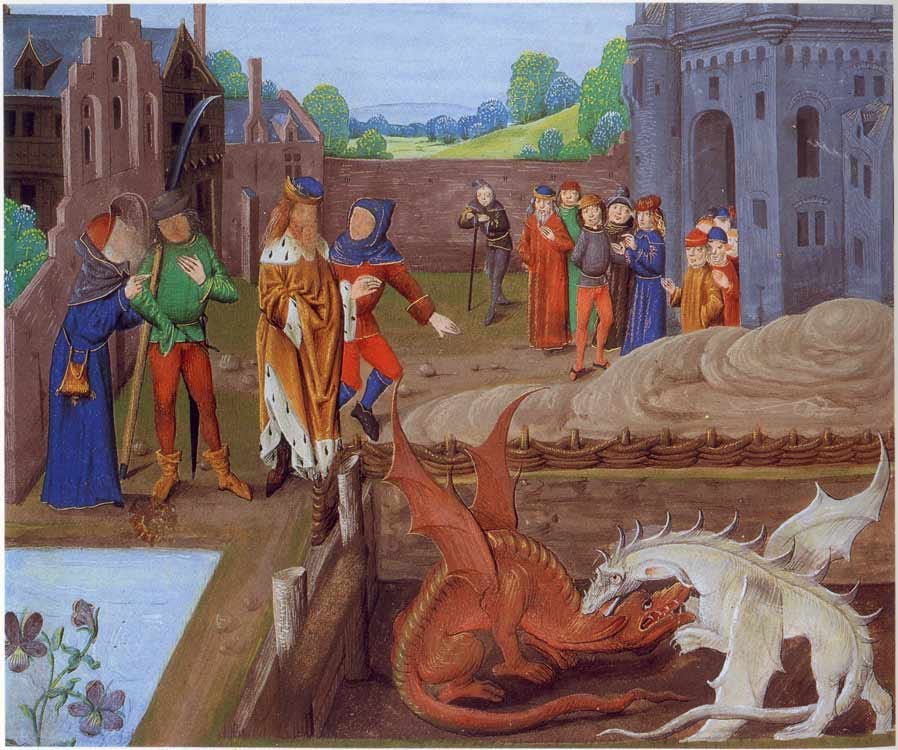
If you get into any debate around Englishness or Anglo-Saxon history you’ll encounter a lot of misconceptions around how people thought about their identity. You’ll hear arguments that people didn’t think about themselves in terms of their nation or people but mainly in terms of their religious identity, their locality, or their loyalty to their king or feudal lord, and that nations only arose much later as a result of modern political processes.
Following on from my previous article on the idea of purely civic nationalism, I am going to write a follow-up looking more deeply into this idea that nations are purely modern creations. But first I’m going to address this question regarding the early history of England and Britain in particular.
Whenever I’ve read original sources from the time, I’ve always been struck by the disconnect between how important nations or peoples were to writers at the time versus how this is downplayed in much of modern discourse. This is not to deny the importance of other forms of identity like religion and the civilised/barbarian distinction, nor to argue that a nation or people of the middle ages was the same as a modern one, but to demonstrate how foundational they were the understanding of the world at the time.
Sources covering the Anglo-Saxon period are not copious, but those that do exist give the impression of a desperate struggle between Romano-Britons, Anglo-Saxons and others like Picts and Scots which was seen in exactly these terms - as between peoples. Modern commentators who want to downplay this often talk instead of things like cultural fusion and diffusion and the malleability of identity. These processes did occur, but it’s certainly not how writers of the time thought about things.
Gildas
One of the earliest accounts of the Anglo-Saxon settlement and invasion of Britain is that of Gildas, a Brythonic monk living in the 5th/6th century. He later emigrated to the Brythonic refuge of Brittany where he wrote De Excidio et Conquestu Britanniae (On the Ruin and Conquest of Britain), castigating the rulers of the Romano-Britons for their failures. Gildas regards his people as Britons but also as Roman citizens, and the distinction between civilisation and barbarism is clearly an important one in his work. The enemies of the Britons, while sometimes just described as barbarians, are also specified as clearly defined peoples.
Gildas recounts the departure of the Romans from Britain, how they urged the Britons to learn to defend themselves against the attacks from the ‘tetri scottorum pictorumque gentes’ (terrible peoples of the Scots and Picts), and describes the famous appeal Gemitus Britannorum (‘The Groans of the Britons’) sent to the Romans seeking military aid with the wonderfully evocative:
“The barbarians drive us to the sea, the sea drives us upon the barbarians; by one or other of these two modes of death we are either killed or drowned.”
He then describes the fateful invitation by a native king to the ‘Saxones deo hominibusque inuisi’ (Saxons, hated by God and man) to Britain, to help defend against the Picts and Scots, and how the Saxons eventually turned against the Britons and started devastating the the country. Gildas concludes the chronology with the Battle of Badon between Britons and Saxons in the early 6th century, which he regards, rather too hopefully, as having halted the invasions, and with a description of the devastated country and continuing civil wars:
“But not even at the present day are the cities of our country inhabited as formerly; deserted and dismantled, they lie neglected until now, because, although wars with foreigners have ceased, domestic wars continue.”
Bede
Bede, the English monk who wrote Historia Ecclesiastica Gentis Anglorum (The Ecclesiastical History of the English People) (Latin / English) around 731, describes the same events from the other side’s perspective. Bede’s sympathies are with the Angles and the Gentis Anglorum more broadly; his work is sometimes concerned with the Angles specifically but also encompasses the history of the related peoples that would become the English.
He begins with a description of the inhabitants of Britain as ‘quinque gentium linguis … Anglorum uidelicet, Brettonum, Scottorum, Pictorum et Latinorum’ (five languages / peoples … of the English, Britons, Scots, Picts and Latins), how the Britons were the first inhabitants, later being joined by the Scots and Picts. He goes on to repeat Gildas’s narrative of the departure of the Romans and the attacks on the Britons by the gentibus transmarinis uehementer saeuis, Scottorum a circio, Pictorum ab aquilone (‘savage foreign peoples, the Scots from the west, the Picts from the north’).
Bede’s account of the arrival of the Anglo-Saxons, unsurprisingly, puts a different spin on it from Gildas’s. Gildas described the Saxons as ‘hated by God and man’, while for Bede, the arrival of the Saxonum gentem or the Anglorum siue Saxonum gens (Angle or Saxon people) ‘appears to have been done by the appointment of our Lord Himself, that evil might fall upon them [the Britons] for their wicked deeds’. One example:
“At this time, Ethelfrid, a most worthy king, and ambitious of glory, governed the kingdom of the Northumbrians, and ravaged the Britons more than all the great men of the English, insomuch that he might be compared to Saul, once king of the Israelites, excepting only this, that he was ignorant of the true religion. For he conquered more territories from the Britons, either making them tributary, or driving the inhabitants clean out, and planting English in their places, than any other king or tribune.”
Bede’s conception of an English people did not mean that there was a united English kingdom. But in his work there’s clearly an idea that the Gentis Anglorum, though divided politically, shared something unifying that distinguished them from the other peoples of Britain.
The unification of England and the Anglo-Saxon Chronicle
The united English kingdom was forged in the 9th and 10th centuries, during the reconquest of the country against the Danes started by Alfred the Great and completed by his grandson Æthelstan. The unified people became known as Angelcynn, a concept promoted under Alfred and his successors.
Alfred had Bede’s history translated into English, as well as sponsoring the Anglo-Saxon Chronicle (Old English / English), which would record Anglo-Saxon and English history for the next few hundred years. A couple of examples:
A. 473. Her Hengest ⁊ Æsc gefuhtan wið Wealas ⁊ genaman unarimedlicu herereaf, ⁊ þa Wealas flugan þa Engle swa swa fyr. (This year Hengest and Esc fought with the Welsh, and took immense booty. And the Welsh fled from the English like fire.)
A. 901 Her gefor Ælfred Aþulfing .vi. nihtum ær Ealra Haligra mæssan, se wæs cing ofer eall Angelcynn butan þam dæle ðe under Dene anwealde wæs (This year died Alfred, the son of Ethelwulf, six days before the mass of All Saints. He was king over the whole English people, except that part which was under the dominion of the Danes.)
By the 11th century the people became known as Englisc and the country as Engla-Lond in Old English or Anglia in Latin.
On the other side, we have the 10th century Annales Cambriae (Annals of Wales) which talks always in terms of Britons and Saxons: ‘Gildas Britonus sapientissmus obiit‘ (Gildas, wisest of the Britons, dies), and ‘Bellum inter Brittones et Saxones’ (war between the Britons and the Saxons). Or the early 10th-century Welsh poem Armes Prydein (The Prophecy of Britain) (Welsh / English) which anticipates driving the Anglo-Saxons out of Britain: “Kymry a Saesson kyferuydyn … A mal [bwyt] balaon Saesson syrthyn”. (“The Cymry will meet the Saxons … And like the budded blossoms the Saxons will fall.”)
Legal Codes
Contemporary works of history by literate monks cannot necessarily be used to illustrate how the mass of the people thought. But we can look at the legal codes that governed everyone’s lives and see that English and Welsh living under the same ruler were treated very differently.
The Laws of Ine from the late 7th century specify different punishments for Welshmen and Englishmen: “A Welshman, who has been reduced to penal slavery, shall be compelled to submit to a scourging, as a slave, by [an oath of] 12 hides; an Englishman, by [an oath of] 34 hides”. The mid-10th century Norðleoda laga (Laws of the Northumbrians) similarly specifies different wergilds: that for the lowest ranked free Englishman (Ceorls) was 200 shillings, while for the lowest ranked free Welshman it was 70 shillings.
In Welsh law, we have the mid 10th century Laws of Hywel, which distinguish between the rights of a Cymro (Welshman) and that of an Alltud (foreigner): an alltud’s word was not equal to that of a Welshman in law, and if a Welsh woman married an alltud, their descendants did not gain full inheritance rights until the third generation.
Identity does not stem purely from political processes
This unified kingdom of England, and its English identity, survived both Danish and Norman rule, assimilating the latter by the end of the 12th century (Hugh M. Thomas’s The English and the Normans is a good book on this process). But as we have seen, the idea that this and other identities derived only from there being a unified kingdom, let alone from a modern state, is not true. Even in a situation of political chaos and disunity, the distinctions between different peoples, and groups of related peoples, mattered hugely to writers (and lawmakers) at the time, and were a fundamental way in which they thought about the world.
Other articles you might like:
On the Folk Beliefs of the Upper Normie: “National identity is just about citizenship”
This is the first in a series on ‘The Folk Beliefs of the Upper Normie’. Future ones will look at topics like the idea of nations as modern inventions, and the idea that Europe was a backwater before colonialism.




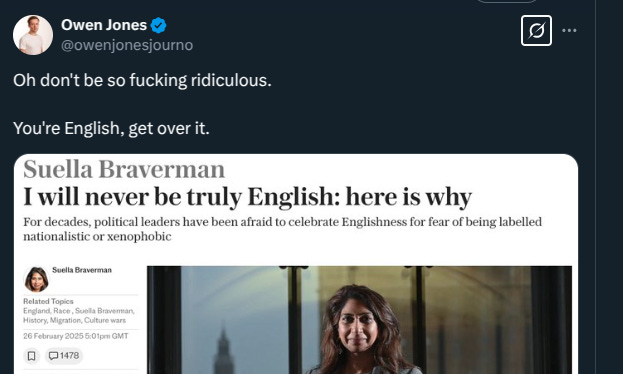





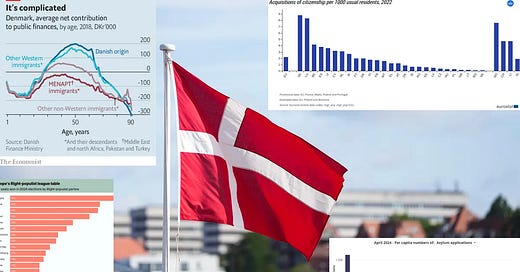

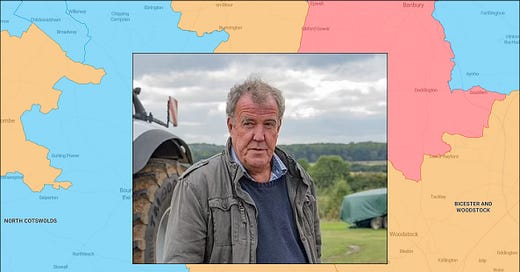

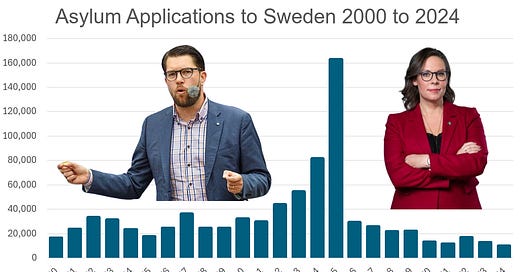

Good writeup. The idea that nationality or ethnicity is a modern invention is one of those ideas so stupid, only academics could believe it. It started out with (often explicitly Marxist) academics like Eric Hobsbawm and has since become the fashionable conventional wisdom.
Azar Gat's book "Nations" is a solid rejoinder, but really reading most ancient texts (Aristotle wrote on how multiculturalism leads to tyranny), medieval (Declaration of Arbroath), or anthropological studies of hunter-gatherer tribes is enough to disprove it.
Academics (as well as most of 'polite' society it seems) have a problem with anything to do with the English, particularly the working class. They are not even allowed to have their own ethnic identity. Nobody would dream of applying similar standards to the Scots, Welsh or Irish. Even Anglo-Saxon Studies, in some circles, is now referred to as 'early medieval', just in case students morph into white supremacists.